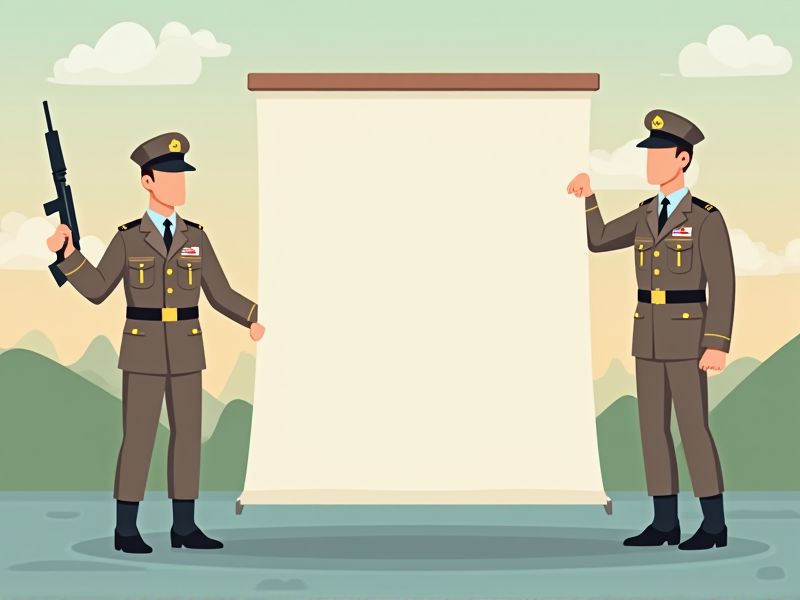
Writing a letter to members of the armed forces can be a meaningful way to express gratitude, provide support, or maintain communication during deployment. Whether you are reaching out to a family member, friend, or a service member you want to thank, it is important to convey your message with clarity, respect, and encouragement. Armed forces letters often include expressions of appreciation for their service, updates from home, and words of motivation. Properly structured letters can boost morale and strengthen bonds despite the distance. To help you craft the perfect message, explore the various letter templates available in this article.
Samples of letter sample for armed forces
Military Letter Sample For Recruitment
Armed Forces Application Letter Template
Soldier Letter Template For Deployment
Military Service Letter Format For Veterans
Armed Forces Letter Of Recommendation Example
Sample Letter For Military Honor Awards
Military Resignation Letter Sample
Letter Of Appreciation Template For Soldiers
Armed Forces Cover Letter For Job Application
Sample Military Commendation Letter
Letter To Military Spouse Sample
Armed Forces Vacation Request Letter
Sample Military Discharge Letter
Letter For Military Service Verification
Armed Forces Letter Of Intent Template
Military Letter For Benefits Application
Letter Of Support For Soldiers Example
Armed Forces Communication Letter Format
Military Family Emergency Letter Sample
Letter Of Transfer Request For Armed Forces
Important Things to Know when Writing Letter Sample For Armed Forces
Proper Format And Structure
Understanding the proper format and structure of a letter for the armed forces is crucial for effective communication. A well-organized letter typically includes your address at the top, followed by the date and the recipient's address. Each section should be clearly defined, starting with a respectful salutation, body paragraphs that convey your message, and a courteous closing. By adhering to these guidelines, you ensure that your letter is professional and easily understood, thereby fostering positive relations with military personnel.
Formal And Respectful Tone
When drafting a letter to the armed forces, maintaining a formal and respectful tone is crucial. This approach reflects the seriousness of the communication and honors the service members' commitment and sacrifice. Use clear and concise language, avoiding slang and overly casual expressions, to ensure that your message is both professional and credible. Remember, the tone you convey in your letter sets the foundation for the respect and recognition that the armed forces deserve.
Clear Purpose And Intent
A letter sample for armed forces should always convey a clear purpose and intent, ensuring that your message is understood without ambiguity. Whether you're expressing gratitude, requesting information, or applying for a position, the language should be straightforward and direct. Using concise sentences and avoiding unnecessary jargon will help your reader grasp your main points quickly. Remember, a well-structured letter not only reflects professionalism but also demonstrates respect for the recipient's time and responsibilities.
Accurate And Concise Information
When drafting a letter sample for the armed forces, it's essential to provide accurate and concise information to ensure clarity and effectiveness in communication. Include relevant details such as the purpose of the letter, specific dates, and any necessary identification numbers. Be direct in your language while maintaining a respectful tone, as this reflects professionalism. Your letter should be organized logically, allowing the recipient to easily understand and respond to your requests or concerns.
Inclusion Of Necessary Military References Or Codes
In crafting a letter sample for the armed forces, it is crucial to include relevant military references or codes that reflect your understanding of the organization. This ensures your correspondence resonates with its recipients, demonstrating your familiarity with protocols and terminology. Incorporating these elements not only enhances the letter's professionalism but also aids in clear communication regarding the specific context or subject matter. Familiarize yourself with the appropriate codes and acronyms to effectively convey your message and show respect for military customs.
